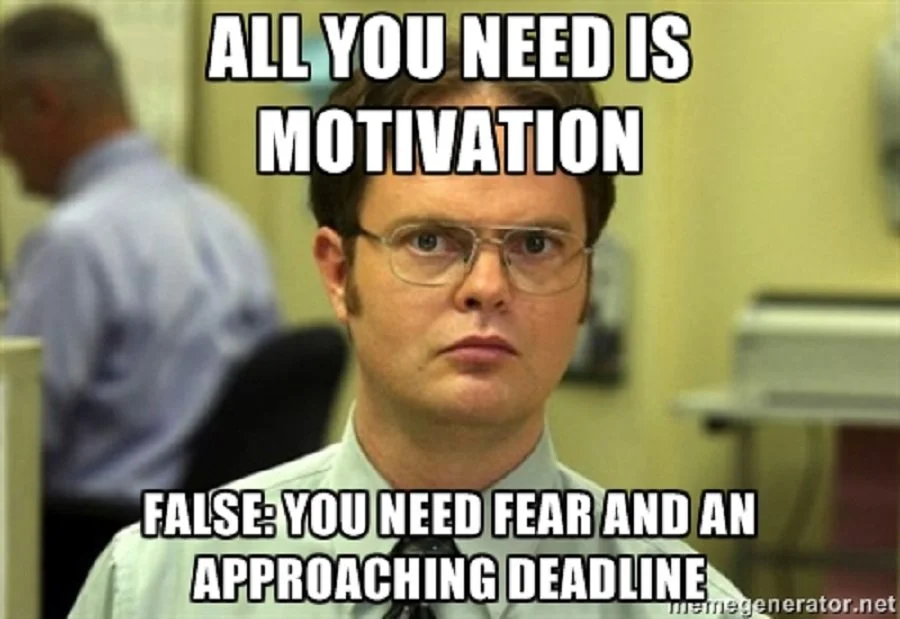Sticking with anything over the long haul is hard, even when we are animated by purpose and even when we care. It’s worth considering why discipline can be so hard in everyday life, in the little choices–those daily decisions that are easily overlooked yet compound to great gains over time.
I’m thinking about this a lot, now two weeks into a high-protein, low-carb diet, and noticing how I’ve struggled silently, doing the moves instead of the work, in other areas.
I live a disciplined life by all accounts: I work out six days a week, read the Bible every morning, and spend time in prayer and contemplation. I eat a bowl of oatmeal for heart health five mornings a week, budget diligently, and blah, blah, blah. You get it. These practices are the real work that leads to real results, but disciplined practices like these can feel absently routine instead of regenerative. Why is it so darned hard to stick with these things that are good for us?
Sticking with anything over the long haul is challenging because we get bored, we lose focus, and we get discouraged.
We get bored.
Our actions become rote.
We do the moves instead of the work.
We lose focus.
Our minds are elsewhere.
We wander while walking the path.
We get discouraged.
Our results take longer than we hoped for.
We slip back into our comforts, quietly quitting at times.
We get bored.
When boredom dominates our routine, it's worth considering novelty just to break it up. I spent the first 150 mornings of 2025 studying one Hebrew word (כּוּן), which means steadfast (ironic? I think not). Steadfast is my theme for the year. And while I can remain steadfast through just about anything in life, it doesn't mean that I don't get bored. I paused at the beginning of June to explore something else. I did this because I was going through the motions instead of growing through the exploration.
Image credit: Getty Images/Carol Yepes
I’m glad I did, because when I resumed in July, I felt more connected to the study and more engaged in the process. I experience this often when reading books. Sometimes I think it occurs because we “got it”, we grasped the point. We received the message and understand the thesis of the text, thirty to forty pages in. I’ve got a lot of books like that, honestly. And because I have another stack of books I want to get to, I move on. I hate to admit that, being an author who has poured over our manuscript, but it’s true. And frankly, I think I’m ok with it.
When I get bored, instead of boring through the self-proclaimed goal, I’ll take a step back, assess, and determine the next steps before anything else. I’ll take a rip at a slight pattern change and look to return to the practice in hopes of fresh eyes and true engagement. I won’t stay bored just to say I accomplished getting through it.
We lose focus.
Losing focus is more insidious. My disposition is to keep going, no matter what, which has served me well over the years. But it has its downsides. Staying with something because I said I’d stay with something can also lead to mindless, meaningless, and impactless activities without action. When we lose focus, we do the moves instead of making moves. We workout, but are somewhere else. We don’t get that extra rep because our minds are engaged in a podcast while our bodies are moving around the weight rack. We make the time to read, but our eyes are merely passing by words while our minds are considering what to put out for dinner.
In my first two years in sales, I drove 60,000 miles a year around the state of Alabama mostly doing the moves. I was on the road, but I wasn’t on the path because I wasn’t present in the pursuit. I logged the miles and the calls, made relationships, had lunch appointments (so many lunch appointments), and felt mostly like I was wandering in the woods instead of pursuing a path to success.
When I lose focus, instead of wandering aimlessly, I’ll change my space and place and reorient on my intentions. Changing space and place can easily occur through micro changes like moving from my desk to an outside space. Sometimes they’re a bit more, like going to a coffee shop to be in the commotion of the community, which helps since I work from home. Other times, the place switch is even greater, like moving from Alabama to the Colorado territory (which I did at the end of my second year in sales), but most of the time, it’s small and doable.
To reorient my intention, I’ll ask myself (out loud), “What are you doing right now and why are you doing it?” And I’ll answer out loud. This technique calls us into our prefrontal cortex and focuses us on the task at hand. I like that…even if I look like an oddball talking to myself. I’d rather look odd than be off course. I can handle being odd. But there is something else that I must work hard to overcome.
We Get Discouraged
Honestly, it’s the discouragement that kills me. When discouragement strikes, it invites apathy and disengagement. I can get discouraged when I’m not seeing the results I’m looking for, when they take longer than expected, or when they aren’t present at all.
Frankly, this is what selling a book feels like because there are no tight feedback loops to help us see what we are aiming for. Having expectations is one thing, failing to meet them is another, but completely being blind in the process is an additional, wholly discouraging feature of the process. In business-to-business sales, the feedback loop is tight and continuous. Whether we align on a partnership or not is more of a known quantity, enabling active learning with real-time feedback. In this way, in the wins you stay up and even in the losses, you can remain encouraged by the lessons. Direct-to-consumer sales are not the same, particularly when you don’t own the point of sale.
No feedback loops lead to little awareness of how you’re doing. You’re flying blind, while efforting toward a result you cannot perceive. And it becomes disheartening at times. But in the absence of tight feedback loops, we must look for signs of progress to prevent us from straying into the doldrums of apathy. We must look for small wins to keep us from the real big losses.
When I get discouraged, that’s what I’m committed to doing–look for encouragement. And I’m here to tell you that when I look for encouragement, I find it was right in front of my face the whole time. I just couldn’t see it because I was too focused on my disappointment, whether realistic or not. It’s in the notes from trusted colleagues saying, “Keep up the great work,” “ You captured in words what I was feeling, but could not articulate,” and the simple, “Thank you.”
The encouragement is there, but we have to get out from under our expectations to see it. We must look for it and ask for help finding it when we can’t.
And when we see it, we can’t ignore it.
We must embrace it.
We must run with it.
We must stick with it if it truly matters.
Sticking with anything that matters can be hard, but anything worth doing will take time, energy, and effort. When the trail is long, we are likely to face boredom, a lack of focus, and a touch of discouragement along the way, but we have to face them well to get to where we are going.
That’s what real goals require.




